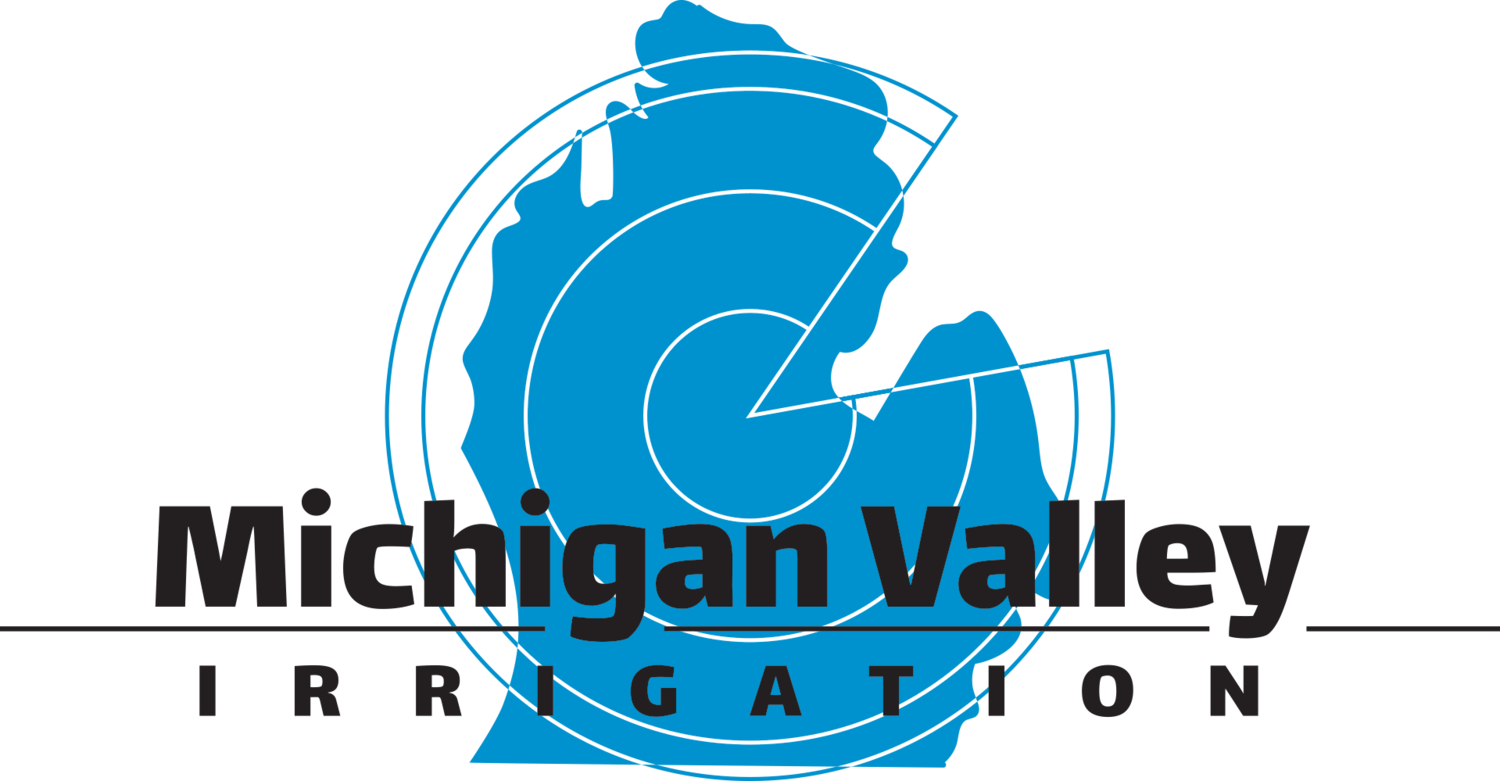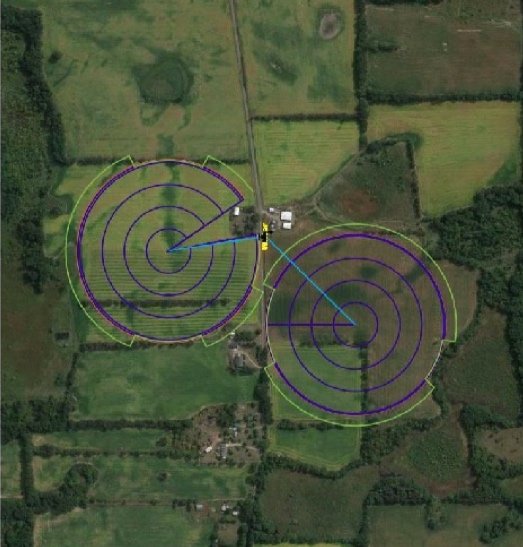Considering Irrigation?
Where do I start? Are Pivots My Best Option?
With most any new enterprise or project, the first few steps are the hardest. Doing some research is critical. Let’s walk through some basic need to knows that will help get started.
How much water does your crop need during the growing season in inches?
What is the average rainfall in your area during this season?
Does that come during the plants greatest demand period?
What is the potential yield gain from adequate moisture?
Drought-stressed Corn
Irrigated Corn
Starting with these basic questions will help you calculate potential benefits to your cash flow, providing a guide to calculating a return on your investment in irrigation.
How much water do you need per season in gallons?
27,154 gallons in an acre inch x 6” / year = 162,924 inches / crop acre.
What level of flow rate will provide the shortfall in a timely fashion?
A recommended baseline is 5.5 gallons per minute for each covered acre.
What are potential water sources to feed your irrigation system?
Lake, Pond, Stream, or Well?
Basic Well Set-up for Two Pivots
Surface Water Pump Station
Can you get an approval from EGLE in Michigan to use the water?
Can your preferred source provide the amount and flow rated desired?
Let’s talk about pivots.
Center pivot irrigation is often the most labor efficient and precise means of applying water to large fields. Large fields are typically those areas covering 40 acres or more. The longer the machine and those designed to make a full revolution are more economical. Crops that require more water and those that have a greater profit margin are great places to start your journey into irrigation. Being able to use a single water source for multiple machines can also reduce your cost per acre. If you consider all the things you do to make a profit raising crops, and ignore the risk of insufficient water, which is a controllable input, why? There is plenty of risk from uncontrollable factors. Manage what you can, you will be a better farmer.
While center pivot projects are a substantial investment in your operation and can take several months to complete, don’t make the mistake of comparing them to other farm equipment purchases, especially rolling stock. They are a long-term investment and can bring value to your business in three different ways:
Better cash flow from increased yields
Added value to your balance sheet nearly equal to the total investment
Estate planning benefits from an asset that often exceeds 40 years of use
You will be rewarded for planning, so take the time to consider future additions and install an efficient design.
If you are truly ready to get started, find an irrigation dealer with plenty of experience and top-quality equipment. If done well, a quality well-designed system will be expandable and used by the next generation and quite likely a third. Even if you decide to discontinue active farming, you may benefit from higher rental rates or greater sale prices for your irrigated acres.
WHEN you are ready to get started,
please call Michigan Valley Irrigation at
989-762-5028
We can:
Help with the initial calculations, including ROI
Submit an EGLE application for your water withdrawal
Provide several designs and layouts
Work with the power company and well driller if needed
Assist in financing
Help you plan for additional machines in the system
Deliver and build the system
Educate you on add-ons like labor saving remote controls, fertigation and chemigation pumps, and cameras for scouting
Calculate the water and electrical infrastructure
Teach you how to operate the system
Provide maintenance, service and repairs
Our goal is to get you
water where you want it, when you need it
and we are truly
here to help you grow!
ABOUT THE AUTHOR
Pete is the marketing manager for Michigan Valley Irrigation, having joined the company in 2016. He was raised on a dairy farm in western New York and graduated from Cornell University with a B.S. in agricultural economics. His entire working career of over 37 years has been involved in agriculture. A farmer helping farmers. When away from Michigan Valley he operates, Joyful Noise Farm, a small livestock and produce farm and spends time with his family.










